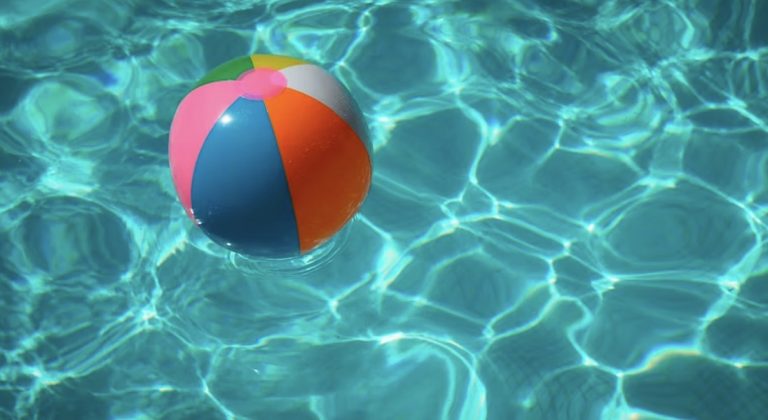Owning a home with a pool is a dream for many, offering a refreshing oasis right in your backyard. However, the allure of crystal-clear waters can quickly fade if proper pool maintenance isn’t a top priority. To keep your pool pristine and enjoyable, it’s crucial to understand and avoid common maintenance mistakes. This ultimate guide will walk you through the intricacies of pool care, helping you sidestep pitfalls and ensuring your aquatic haven remains a source of joy rather than frustration.
Story Stages
Understanding the Basics of Pool Chemistry
Maintaining the right balance of chemicals is the cornerstone of effective pool care. Many homeowners make the mistake of underestimating the importance of water chemistry. Regularly test the water for pH levels, chlorine, alkalinity, and calcium hardness. Failing to maintain the appropriate chemical balance can lead to a host of problems, including cloudy water, algae growth, and skin irritations. Invest in a reliable testing kit and familiarize yourself with the ideal ranges for each chemical component. Regular monitoring and adjustment will prevent many potential issues and keep your pool water sparkling and clear.
Additionally, understanding how different chemicals interact and affect water quality is essential. For instance, high levels of chlorine can cause skin and eye irritation, while low levels may result in inadequate sanitation. It’s a delicate balance that requires attention to detail. Regularly shock your pool to eliminate contaminants and maintain proper chlorine levels, ensuring a safe and comfortable swimming environment for all.
Skimming and Brushing: The Key to a Clean Pool
Skimming the pool’s surface and brushing its walls might seem like basic tasks, but they are often neglected or not done as frequently as they should be. Leaves, debris, and other contaminants can quickly accumulate on the water’s surface, leading to filter clogs and impaired water circulation. Regularly skim the pool with a net to remove floating debris and use a pool brush to scrub the walls and floor, preventing the buildup of algae and other unsightly substances. Additionally, the use of a pool cleaner can enhance overall cleanliness and maintenance efficiency. It’s crucial to establish a routine for these tasks, especially during peak seasons or when there’s increased pool usage.
Consistency in skimming, brushing, and using a pool cleaner not only keeps the pool aesthetically pleasing but also reduces the load on the filtration system. As a result, your pump and filter can operate more efficiently, extending their lifespan and saving you money on potential repairs or replacements.
The Importance of Regular Filter Maintenance
The pool filter is the unsung hero of a well-maintained pool. Many homeowners, however, overlook the significance of regular filter maintenance. Neglecting to clean or replace the filter as needed can result in reduced efficiency and compromised water quality. Check your filter regularly, clean or replace it according to the manufacturer’s recommendations, and backwash when necessary.
Different types of filters, such as sand, cartridge, and diatomaceous earth (DE) filters, have distinct maintenance requirements. Familiarize yourself with the specific needs of your filter to ensure proper care. A clean and properly functioning filter ensures that the water is free of impurities, preventing issues such as cloudy water and algae blooms. Don’t underestimate the impact a well-maintained filter can have on the overall health of your pool.
Balancing Water Levels and Avoiding Overfill
Maintaining the right water level in your pool is often an overlooked aspect of proper pool care. Some homeowners make the mistake of overfilling their pools, which can lead to water wastage and potentially damage the pool’s structure. On the other hand, letting the water level drop too low can strain the skimmer and pump, affecting their efficiency.
Strike a balance by monitoring the water level regularly and adding or draining water as needed. This simple yet crucial step will optimize the performance of your pool equipment and help prevent unnecessary wear and tear. Additionally, consider investing in an automatic water leveler to regulate water levels automatically, providing a hassle-free solution to this often neglected aspect of pool maintenance.
Protecting Your Pool from Sun Damage
While a pool is synonymous with sunny days, prolonged exposure to sunlight can have detrimental effects on both the water and the pool structure. UV rays can deplete chlorine levels and cause the breakdown of other chemicals, leading to imbalances in water chemistry. Additionally, continuous sun exposure can fade pool liners and damage other pool materials.
To prevent sun damage, consider using a pool cover when the pool is not in use. This not only protects the water from UV rays but also reduces evaporation, conserving water and maintaining proper chemical concentrations. Choose a cover that suits your pool type and climate, and make covering and uncovering part of your routine to ensure consistent protection.
Regular Professional Inspections and Maintenance
Even with diligent at-home care, it’s essential to schedule regular professional inspections and maintenance. A pool professional can identify potential issues before they escalate, ensuring that your pool equipment operates at peak efficiency. From checking for leaks and inspecting electrical components to lubricating moving parts, professional maintenance goes beyond the scope of typical homeowner tasks.
Establish a routine maintenance schedule with a qualified pool service provider to address any concerns promptly and keep your pool in optimal condition. Professionals can also provide valuable advice on specific aspects of your pool, such as the optimal operating time for your pump or adjustments to the filtration system based on seasonal variations.

In conclusion, maintaining a home pool requires a combination of diligence, knowledge, and a proactive approach. By understanding the basics of pool chemistry, regularly skimming and brushing, maintaining the filter, balancing water levels, protecting against sun damage, and scheduling professional inspections, you can prevent common maintenance mistakes and enjoy a clean, clear, and inviting pool year-round.
With these guidelines in mind, you’ll be well-equipped to make the most of your aquatic oasis while avoiding the headaches that can arise from neglected pool care. Remember, a well-maintained pool not only enhances your property but also provides a refreshing haven for relaxation and enjoyment. Stay committed to your pool maintenance routine, and you’ll reap the benefits of a beautiful and trouble-free swimming experience.
